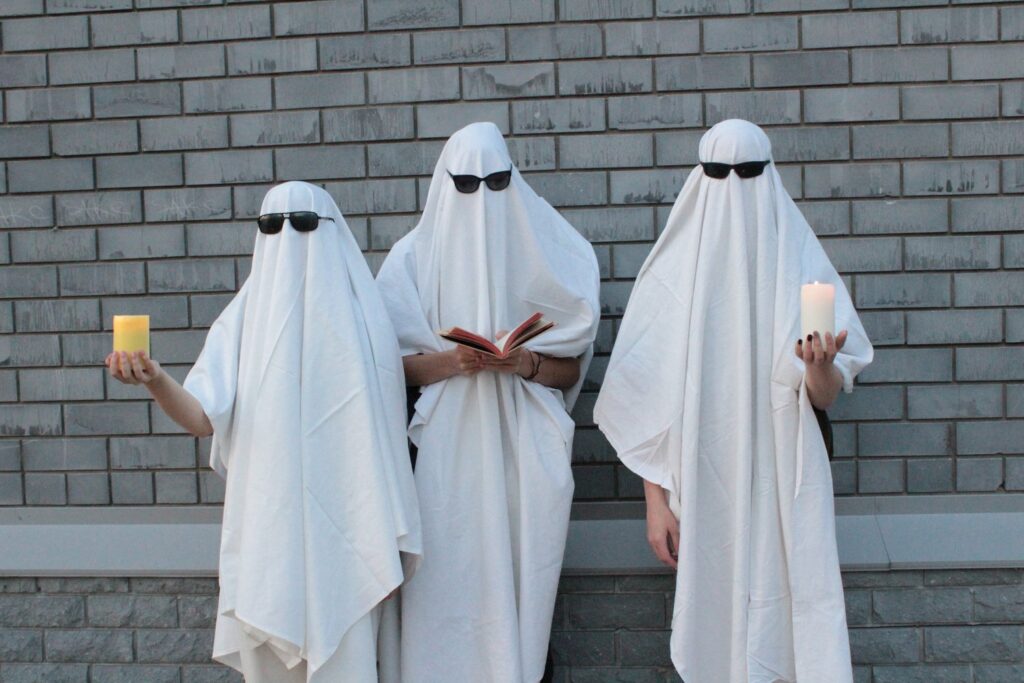
Who ya gonna call? The NGU psych department
Chase Bridges, Assistant Editor
With October reaching its end, Halloween starts to take over pop culture quickly and efficiently. Fall festivals, haunted trails, and scary stories around the campfire start to get penciled into your schedule before you even realize it.
A fascination with the paranormal has infatuated people for decades, but has seen a huge resurgence in the past few years. Tiktok pages dedicated to scary stories, supernatural crime podcasts and ghost hunting television shows have become more mainstream than ever before.
So what is the scientific truth behind all these ghost stories? Is it a psychological thing? A side effect of a mental disorder? Or are actual ghosts running around?
Dr. Shannon Dobson, a psychology professor at North Greenville, spoke about certain disorders that can cause hallucinations of ghosts or other supernatural beings.
“Individuals with schizophrenia may experience visions and/or hear voices that they believe are real and they may act on what they see and hear as if they are occurring in real time.” Dobson said.
She continued to list a few other diseases that could cause such effects, such as Parkinson’s disease and Charles Bonnet syndrome.
Dobson said, “There are people with Parkinson’s disease who can develop a form of dementia that may be accompanied by visual hallucinations. [And] medications have been developed to reduce those experiences. A degenerative visual disease called Charles Bonnet syndrome can similarly lead to artifacts in the visual field or strange images (like fur on a wall in a room you are sitting in) that can be scary to the patients and make them conclude that they are seeing ghosts or something paranormal.”
As fascinating as these symptoms can be, it would be very unlikely that every person who has claimed to see a ghost is having side effects from Parkinson’s or schizophrenia. Could there be a more common psychological answer to all these ghouls and ghosts?
Dr. Robert Gaddis, a psychology professor at North Greenville, shared some insight about people seeing ghosts just because that is what they want to see.
He said there are a variety of cognitive biases, i.e., ways that our thinking goes wrong. Confirmation bias is the tendency we all have to only look for or believe evidence that confirms what we already think to be true.
Gaddis continued, “So, yes, if I want something to be real I will likely find evidence for its reality. However, the fact that we do this neither proves nor disproves that ghosts are real.”
The end of Gaddis’ statement gives a wink to the idea of not writing off the supernatural so easily — a wink he did not give alone. Dobson gave a similar statement about the supernatural point of view.
He said, “As Christians, we do believe that supernatural events, certainly as described in the Bible, were real and could possibly occur today. However, the ghost hunting shows that we see on TV do not represent similar types of events and are most certainly manufactured for entertainment purposes.”
Real or not, the idea of the supernatural will be a subject that continues to fascinate people. Ghost tours, scary stories and unexplainable sightings will continue to be talking points for years to come.
So, even if you consider yourself a hardcore skeptic of the supernatural, try to open up your mind enough to enjoy the festivities.
*Featured Image: People dressed as ghosts – Photo courtesy of unsplash.com.
